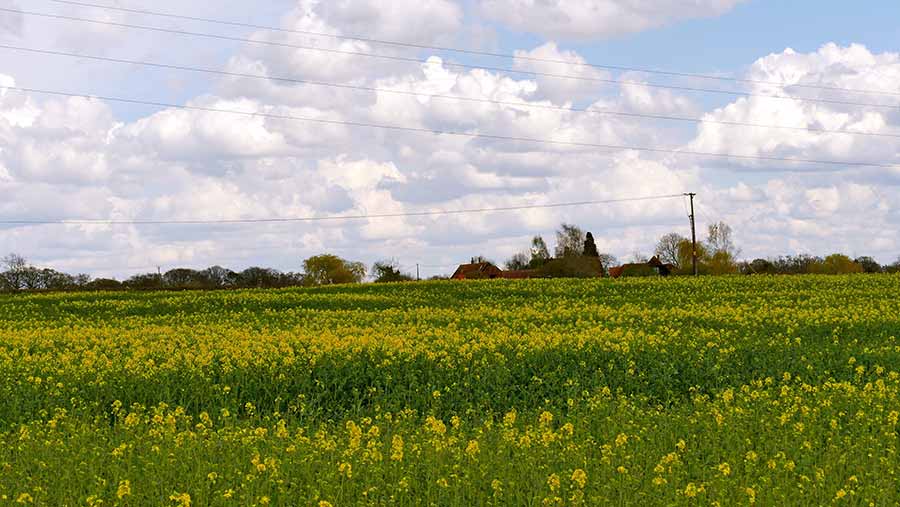
Sclerotinia builds in oilseed rape as temperatures start to climb - farmers weekly
- Select a language for the TTS:
- UK English Female
- UK English Male
- US English Female
- US English Male
- Australian Female
- Australian Male
- Language selected: (auto detect) - EN
Play all audios:

© Geoffrey Swaine/Rex/Shutterstock April showers and slowly rising temperatures mean the risk of sclerotinia infection is building in early oilseed rape. Crops in warmer, southern counties
are now hitting mid-flower, with early disease alerts from the AHDB/BASF sclerotinia risk report service being triggered in Devon, Hertfordshire, Cambridgeshire, South Wales and East
Yorkshire during a spell of warmer weather in the last week. However, cooler weather across most parts of the country is bringing the potential for a prolonged flowering period, and
therefore greater disease infection risk. See also: The ultimate guide to disease and pest forecasting High levels of sclerotinia inoculum have been recorded at the Devon and East Yorkshire
monitoring sites, while the rest of the UK remains at a reasonably low disease risk. If warmer weather does arrive, airborne spore levels are likely to increase rapidly. Adas plant
pathologist Caroline Young recommends that growers keep a close eye on their local weather forecast to help determine if crops need a fungicide spray. “Generally the nights are still too
cold and that is keeping sclerotinia back. Local conditions should be monitored, and if there are cloudy nights, temperatures will be warmer,” she says. “It is likely to be cold again this
weekend and next week, but if there is a warm phase of days locally with a mild night-time temperature, then the risk will increase and it would be good to get a protection spray on.” See
also: Sclerotinia lifecycle and biology Dr Young adds that it is tricky to make generalisations on the sclerotinia threat level, with rapeseed crops in northern areas now beginning to
flower, variable flowering progress reported in Cambridgeshire and crops in the mild South-West reaching the mid-flower growth stage. “There hasn’t been significant petal fall overall, but
in Devon there has actually been a lot of petal fall, with petals sticking to leaves because of the April showers. “Sclerotinia germination is now occurring at all monitoring sites apart
from Kent, but this is still at low levels so far.” The disease infects oilseed rape plants when flower petals carrying the inoculum fall and stick to wet leaves. FOR MORE INFORMATION ON THE
SCLEROTINIA RISK IN YOUR AREA, VISIT THE AHDB/BASF SCLEROTINIA RISK MONITORING TOOL WEBPAGE.
